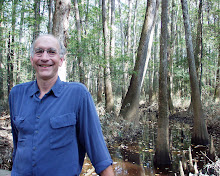Two bits of climate news converged in ironic fashion over the past several days, as seemingly random bits of news tend to do now and again.
The first was Senator Barbara Boxer's (D-CA) announcement last week that the committee she chairs, the Senate Environment and Public Works Committee, will wait until after the August Congressional recess to take up consideration of climate change legislation. With several other pressing topics up for Senate consideration before the recess (i.e., Supreme Court nominee confirmation, health care, appropriations), the EPW Committee would have been hard pressed to give the complex and important climate legislation its due attention before hand. Even beyond that relatively short Committee delay, full Senate passage of climate change legislation this year is less than certain, portending even further delays.
I noticed the second news headline yesterday (Sunday) in The Observer article entitled: "Wild weather in the year ahead, scientists predict," in which scientists predict that along with "droughts, floods and other extreme events, the next few years are also likely to be the hottest on record." All the result of an evolving "global "El Niño" phenomenon exacerbat(ing) the impact of global warming."
Now I wouldn't want to wish droughts, flooding, heat waves or other "extreme events" on anyone, particularly the world's poor, who often seem to be at most risk from such events. And the Upper Mississippi River basin certainly has seen more than its fair share of flooding over the years. However, in light of the human tendency to react under crisis with more urgency and certainty that when not in crisis mode, a decision to delay serious consideration of climate legislation in the short term may result in more serious consideration of climate legislation in the long term, if that short term gives us a glimpse into what a climate-changed future might hold.
What that future might hold for the Upper Midwest was outlined in a June report by the U.S. Global Change Research Program, which “summarizes the science of climate change and the impacts of climate change on the United States, now and in the future.” Specifically, for the Midwestern U.S., the authors predict "an increase in precipitation in winter and spring, more heavy downpours, and greater evaporation in summer, leading to more periods of both floods and water deficits." More "droughts, floods and other extreme events," in other words.
El Niño means "the child" in Spanish. Perhaps it will be a child who brings clarity to the climate change debate. - Mark Gorman
A somewhat frequent description of ordinary life on the edge of the Washington DC cityscape and political-scape from the perspective of someone who's only recently flown in.
Check Here for the Latest Inside the Beltway Political Fix
Subscribe Now: Feed Icon
About Me

- Mark Gorman
- I was born in Williamsport, Pennsylvania, along the banks of the Susquehanna River, in the valley made up by Bald Eagle Mountain to the south, and gentle hills and valleys to the north. That place that sheltered me, gave me food and friends, and both physical and spiritual nourishment for 18 years. That is the space where I was physically and emotionally formed. Ever since growing up there . . . because of growing up there . . . I have been inexorably linked to nature . . . to the earth and to all life.
